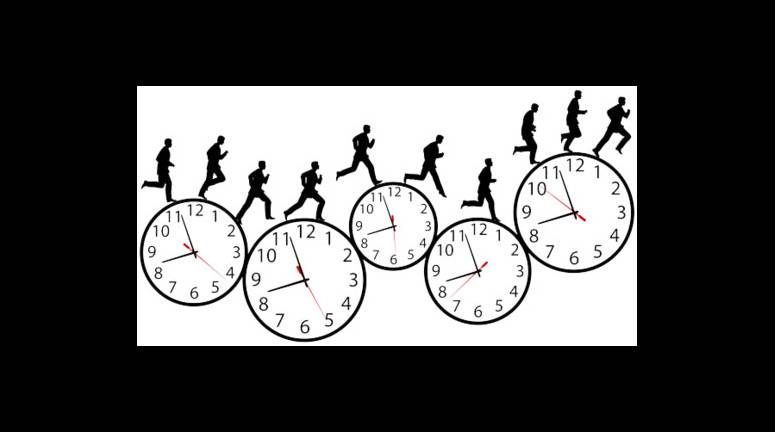ОңПҖОҝПҒОөОҜ ОҝВ ПғПҚОіПҮПҒОҝОҪОҝПӮВ О¬ОҪОёПҒПүПҖОҝПӮ ОҪОұ ОҙОҝП…О»ОөПҚОөО№ ПғП…ОҪОӯПҮОөО№Оұ В«ПғП„Оұ ОәПҢОәОәО№ОҪОұВ» ПҮПүПҒОҜПӮ ОұОҪП„ОҜОәП„П…ПҖОҝ ПғП„О·ОҪ ОәОұОёО·ОјОөПҒО№ОҪО® П„ОҝП… О¶ПүО®; ОҘПҖО¬ПҒПҮОөО№ ПҶПҢОІОҝПӮ ПҢП„ОұОҪ ОІПҒО№ПғОәПҢОјОұПғП„Оө ОјПҢОҪОҝО№В ОұПҖОӯОҪОұОҪП„О№В ПғП„О№ПӮ ПғОәОӯПҲОөО№ПӮ ОјОұПӮ;
ОЈОө П„О№ ОјПҖОҝПҒОөОҜ ОҪОұ ОјОұПӮ ПүПҶОөО»О®ПғОөО№ О· ОөО»ОөПҚОёОөПҒО· ПҺПҒОұ ОјОӯПғОұ ПғОө ОӯОҪОұ ОұОіПҮПүП„О№ОәПҢ ОөО№ОәОҝПғО№П„ОөП„ПҒО¬ПүПҒОҝ;
Оҹ ПҲП…ПҮОҝО»ПҢОіОҝПӮ О‘О»ОӯОҫОұОҪОҙПҒОҝПӮ О‘ОіОіОӯО»ОҝП… ОјОұПӮ ОөО№ПғО¬ОіОөО№ ПғП„О·ОҪ ОӯОҪОҪОҝО№Оұ В«SlowtimeВ» ОәОұО№ П„Оұ ОөП…ОөПҒОіОөП„О№ОәО¬ ПҖО»ОөОҝОҪОөОәП„О®ОјОұП„Оұ П„ОҝП… ОөО»ОөПҚОёОөПҒОҝП… ПҮПҒПҢОҪОҝП… ПғП„О·ОҪ ОәОұОёО·ОјОөПҒО№ОҪО® ОјОұПӮ О¶ПүО®. О•ПҖО№О»ОҝОіО® О® П…ПҖОҝПҮПҒОӯПүПғО·, Оҝ ОөО»ОөПҚОёОөПҒОҝПӮ ПҮПҒПҢОҪОҝПӮ ПҶП„О№О¬ПҮОҪОөО№ П„Оҝ ОјОҝОҪОҝПҖО¬П„О№ ОіО№Оұ ОјОөОіО№ПғП„ОҝПҖОҝОҜО·ПғО· П„О·ПӮ ПҖОұПҒОұОіПүОіО№ОәПҢП„О·П„ОұПӮ ОәОұО№ П„О·ПӮ ОҝОҫП…ОҙОӯПҒОәОөО№ОұПӮ.В
Slowtime: Why you need it
О‘ПҖПҢ П„ОҝОҪ О‘О»ОӯОҫОұОҪОҙПҒОҝ О‘ОіОіОӯО»ОҝП…
In the past years there has been an exponential acceleration of the pace of life.В This has led to an explosion of an array of anxiety disorders.В Around five years ago, I thought that in the future, the daily work of a psychologist would not only consist of helping people through their difficulties but would also be to optimize peopleвҖҷs functioning so as to be able to cope and thrive in the fast paced society.В This would be done by вҖҳdebuggingвҖҷ and enhancing the way we think and combining it with good habits linked to well being and good life hygiene.В Less than five years later, this has become a reality.
Optimising the way we function to be more efficient is becoming a necessity in a world where there is constant pressure to do more in less time and with less resources.В вҖҳRunningвҖҷ faster is what most people do, but itвҖҷs a mistake.В People who push harder also tend to change their expectations and try to be in a highly efficient and hyper-productive mode all the time.В Just like with a car engine, you can optimise it and it will run more efficiently, but that doesnвҖҷt mean you can be in the red all the time. В
Every day, I see highly functioning professionals that have very busy and demanding lives, in which every minute counts and is allocated to something.В ItвҖҷs very difficult to live like this as there is little or no margin for error or breathing space.В Something I often say in my practice is that вҖҳthe set-up in our life has to be realistic and sustainable.вҖҷВ We need pleasurable activities as well as some resting time on a daily basis.
What do people do to rest and recover from their frantic daily lives?В Many surf the web, play sports or go to the gym, watch TV-series, play video gamesвҖҰВ These activities indeed offer a much needed break and physical activity does help to channel tension, yet they do not slow down the pace at which we function.В I see people being less and less comfortable when not busy doing something and IвҖҷm starting to see it in their children as well.В Being alone with ourselves has become so rare that for many it has become scary.В People are often afraid of being left alone with their thoughts which have piled up and have become intimidating.В This motivates people to distract themselves and to escape by continuing to maintain the fast pace.В This has a draining effect as it costs us more energy.В If we spend more energy than we collect, then we eventually run out, which is what burnout is all about.
So what is В«SlowtimeВ»?В Slowtime is the time that we spend doing an activity that slows down the pace of life.В Integrating Slowtime in our daily routine allows us to recover most efficiently as the stimuli we are exposed too are reduced in number and intensity.В This means that the body calms down and that our thought flow slows down, which isnвҖҷt the case when we are engaging in stimulating activities, even though we may label as вҖҳresting time.вҖҷ
All resting time is not Slowtime. I believe that this is one of the key elements in thriving in a fast pace society.В Time we spend reading a book, cooking, gardening, playing with our dog or cat, practicing yoga or mindfulness helps slow down the pace or speed of life; this is what I call Slowtime.В My advice to you is to integrate an hour of Slowtime a day, not only will you feel that the quality of your daily life will improve but this will also make you sharper and more productive.


О”ОөОҪ П…ПҖО¬ПҒПҮОҝП…ОҪ ПғПҮПҢО»О№Оұ ОіО№Оұ П„Оҝ О¬ПҒОёПҒОҝ "Slowtime: О“О№ОұП„ОҜ ОјОұПӮ ПҮПҒОөО№О¬О¶ОөП„ОұО№;"